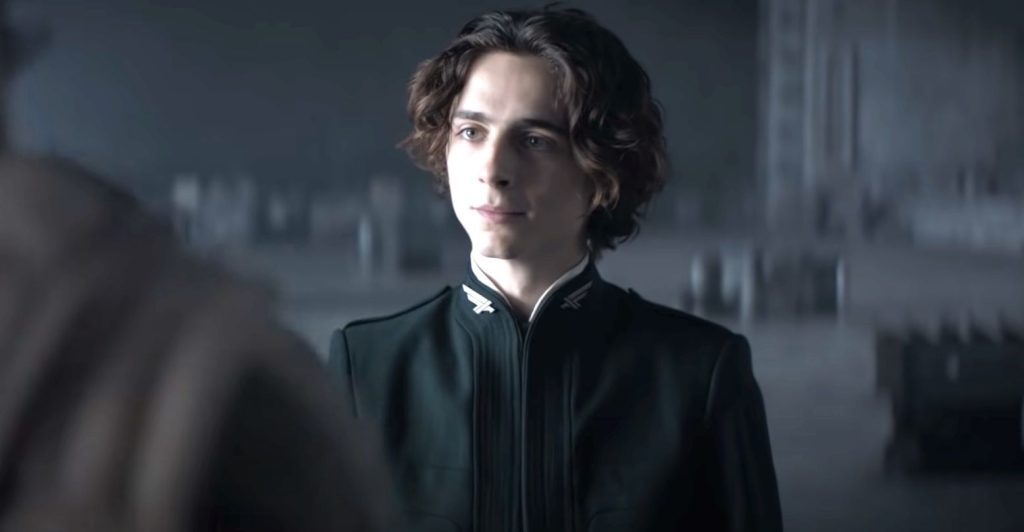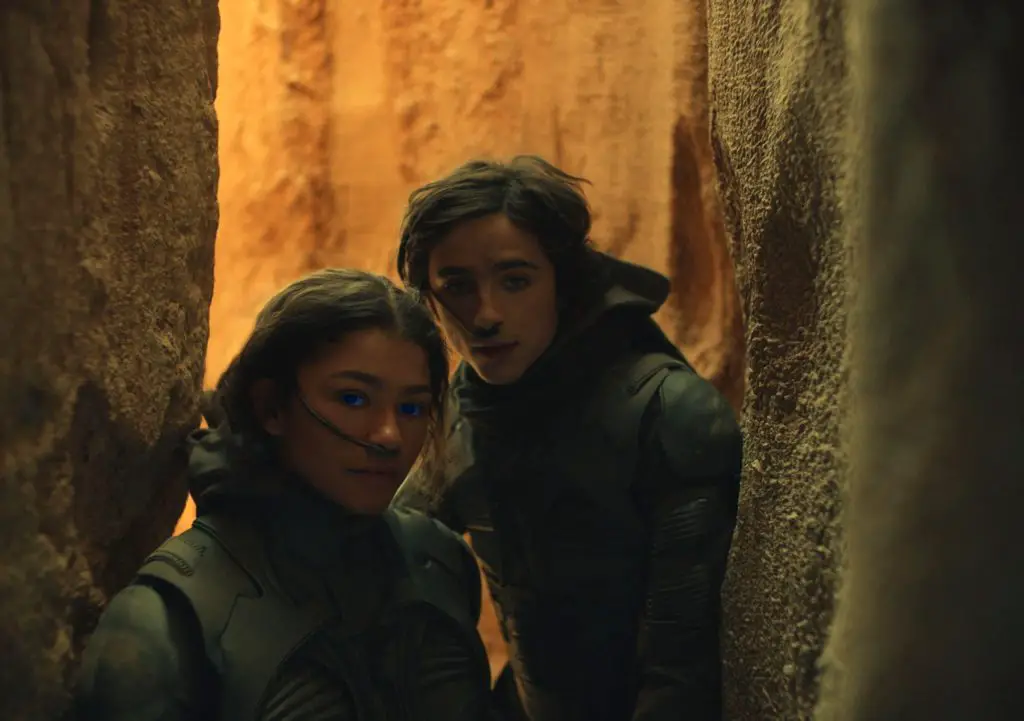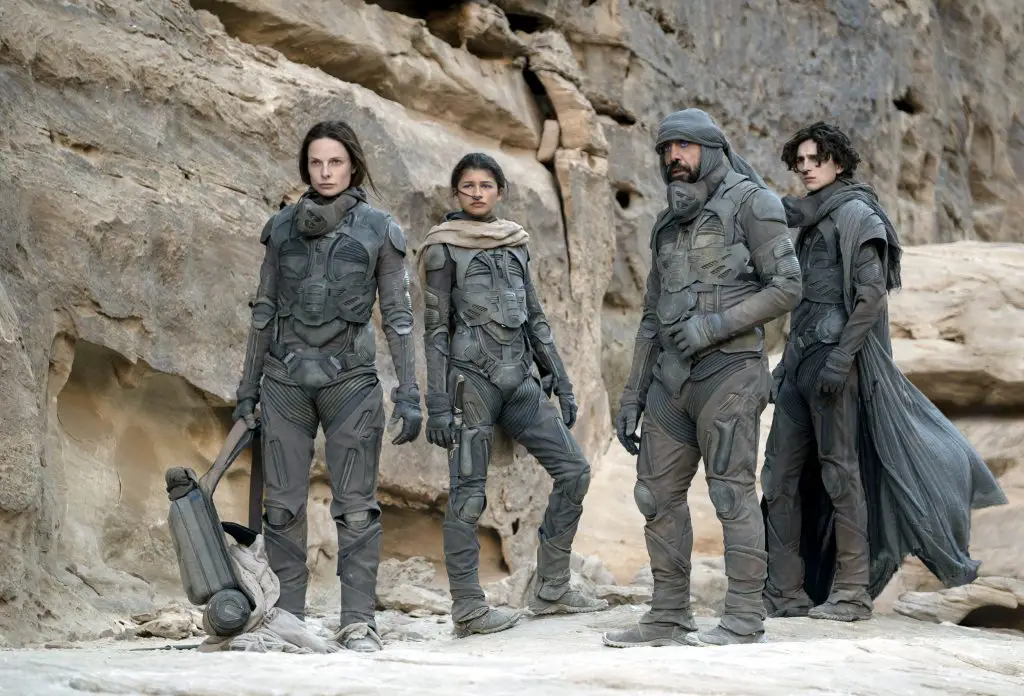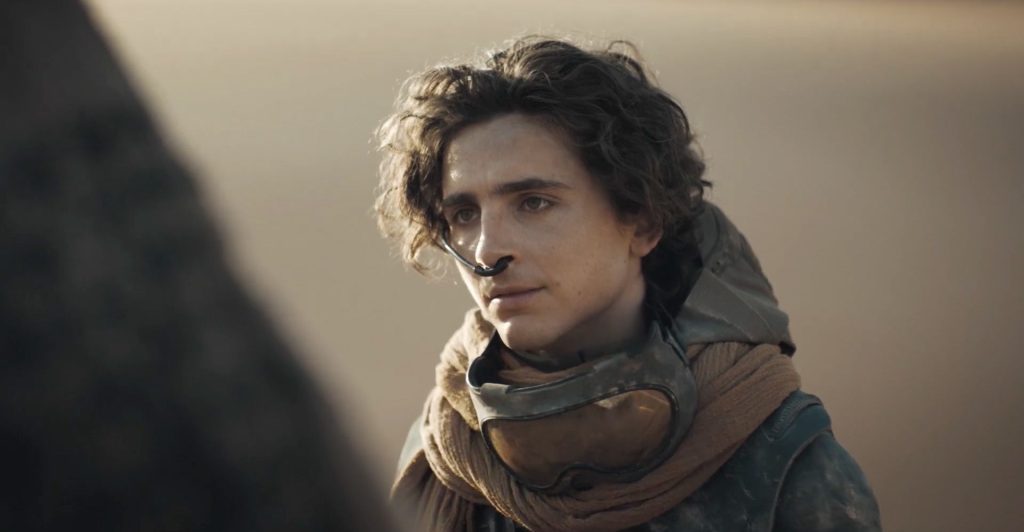The countdown to the sequel of Denis Villeneuve’s cinematic adaptation of Dune is ticking away. By early November, we’ll witness if this renowned director can once again conquer the colossal task of bringing more of Frank Herbert’s legendary, genre-defining science fiction novel from the written page to the film screen.
There’s an air of assuredness surrounding Villeneuve, as he’s officially unveiled his grand vision of a Dune trilogy. His ambition is to adapt Herbert’s second book, Dune: Messiah, into the third film, rounding off a cinematic triumvirate to remember. Intriguingly, he’s announced this bold venture before obtaining formal approval from his studio, Warner Brothers.
The prospect of even more Dune under Villeneuve’s direction has stirred up considerable anticipation among fans. It seems highly plausible that Warner Brothers will give this remarkable director the green light, considering the first film received a whopping ten Oscar nominations, securing six wins. With six richly layered novels in Herbert’s original Dune series, and a plethora of sequels and prequels to explore, it seems there could be a lot more Dune on the horizon.
However, this surfeit of material may not necessarily be a boon. As gifted as Villeneuve undoubtedly is, he’s not Herbert. His canvas is an entirely different medium, catering to an entirely different generation, which implies a potential disconnect with audiences as the Dune films progress.
Moreover, fans themselves admit that later novels in the series deviate into peculiar territories and falter in quality. The narrative density of each book presents a substantial challenge, which means if Villeneuve and Warner Brothers aim to stay true to the story, audiences may have to endure a series of two-part films, testing their patience and actors’ endurance. The case for why Villeneuve should gracefully bow out after Dune: Part Two, making it the final installment of the franchise, grows stronger.
Oversaturation of Material

Herbert’s original Dune Chronicles encompass six novels, each one teeming with abundant lore and intricate details that build a profoundly immersive world. The narratives are tightly interwoven, each book individually and collectively brimming with remarkable world-building and character development.
Villeneuve prudently chose to bifurcate his first adaptation of the initial novel. Although this was a successful gambit initially, it’s questionable whether such a strategy would hold up for the rest of the novels the studio seeks to adapt. As the line of movies extends, the probability of one film underperforming heightens, making it challenging for audiences to commit to another two-part venture.
The Marvel Cinematic Universe (MCU) under Disney’s wing has enjoyed an unprecedented fifteen-year streak of success due to the combination of interconnected yet standalone movies. A prevalent critique of Villeneuve’s initial installment was its excessive focus on laying the groundwork for the sequel, leaving some audience members dissatisfied. If such a setup persists in later sequels, fans may quickly lose interest. Thus, wrapping up the series with Part Two could provide a fulfilling, rounded narrative.
Excessive Peculiarity

Herbert’s Dune series has often been described as among the most unfilmable books owing to its sheer eccentricity. The narrative encompasses human computers, psychedelic space travel, and genetically modified witch clans, which captivate initially. However, delving deeper into the lore, as Herbert did and Villeneuve might do, we encounter cloned dead characters, uncomfortably intimate politics and battles, and eloquent, deadly newborns.
Additionally, Dune: Messiah, the most divisive book of the series, portrays Paul, the Emperor of the Known Universe, corrupted by power and descending into tyranny. If Villeneuve chooses this book to conclude his trilogy, it might not be the wisest decision.
Progressing beyond this point, the narrative plunges into further peculiarities. Paul’s transformation into a monstrous, human-faced sandworm and his reincarnation as a prophet denouncing his former empire and endorsing ‘chairdogs’ – bizarre, bio-engineered dog-shaped massage chairs, stray far from Oscar-worthy material. Restricting the film adaptations to the first book could preserve an untarnished epic legacy, free from excessive oddities and potential failure.
Infeasible Timeline

The practicality of splitting six books into twelve films seems questionable, both for audiences and actors. With Villeneuve’s pace of approximately two years per movie for Part One and Part Two, an additional ten movies might span an unrealistic two decades, given a smooth filming and production process.
Gathering and sustaining an audience for Dune over this lengthy period appears unlikely. The MCU has been in existence for fifteen years, and the fatigue is becoming palpable, among both fans and critics. The notion of Dune retaining an audience with its current trajectory a decade hence is remote.
Furthermore, the narrative continuity spanning several characters over multiple films and the ensuing literal and metaphorical evolution of characters would pose a daunting task for the audience to follow and actors to enact over decades. Recruiting new actors would further confuse viewers and inflate costs, increasing the chances of mishaps. Even Villeneuve might find it challenging to keep up, risking the loss of the creative director driving the series. A short and sweet adaptation focusing on the first book would safeguard Dune from overextension.
Unsustainable Risk

Continuing the film franchise beyond Dune: Part Two seems like an unwarranted risk. The planned Max series centered on the Bene Gesserit Sisterhood could augment the franchise by providing much-needed context and world-building. However, a third film following the second part might promise more than it can deliver. In the interest of preserving the franchise’s integrity, Dune should conclude with Part Two.


